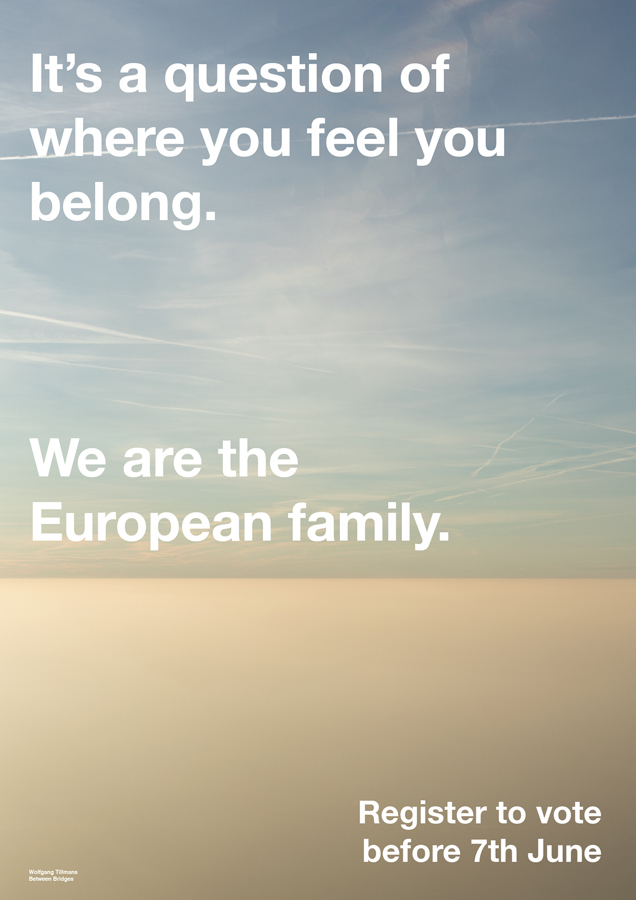Both sides of the Brexit debate are bombarding us with stats, facts and charts, intending to convince us of their arguments but how do you attach numerical values to creativity. How do you even begin to count the value of creative endeavours when it comes to society, cultural influence or personal fulfilment? But we can think about the individuals behind the creative output. Real people with livelihoods.
In 2012, at least 1.6 million people in the UK were employed in the creative industries, pumping out £71.4bn in gross value added. By the end of 2014, that number of people increased to 1.8 million. And if we take total employment across the “Creative Economy” (creative industries + creative occupations irrespective of industry), we’re looking at 2.8 million people. Another fun fact: while the UK currently accounts for 14% of the total EU workforce, that number jumps to 21% for creative industry jobs. Great Britain is undeniably a creative hub, which makes it dynamic and inspiring, in the truest sense of the words. And finally, the latest figures indicate employment in the creative industries grew by nearly 9%, which was much higher than the UK economy as a whole – a paltry 0.7%.
What none of these statistics tell us, however, is how many of those people are citizens of another country in the European Union. And this matters because… we need to talk about Brexit.
While the UK currently accounts for 14% of the total EU workforce, that number jumps to 21% for creative industry jobs.
While there are, of course, the matters connected to the economy, security and defence, social justice, the environment, travel, education and more, I’m dedicating this think piece to the creatives. Shout out to all those who belong in Annex A and B, but also to anyone who would place themselves in a creative industry, government statistics-approved or not.
At the risk of invoking the Daily Mail, immigration is a real concern for those in the creative industries, but from the perspective of the freedom of movement EU citizens all currently enjoy (thanks, Treaty of Maastricht!). Considering that the creative industries in the UK are especially populated with people from all over the EU, any changes in immigration status for European citizens would certainly diminish a talent pool that has particularly benefitted from a cross-cultural mix. And just think about how many EU citizens you interact and/or collaborate with on a daily basis. How many of them would you be gutted to lose because of a successful Vote Leave campaign? And if the process of obtaining this now-theoretical visa comes anything close to that of a UK tax-paying and UK-educated Commonwealth citizen married to a British citizen such as myself (sorry, had to throw that in there – personal hobby horse), then get ready to have your wallet emptied, annual income scoffed at and spirit broken. The Home Office has quite the successful sideline business in the UK Visas and Immigration department, you know.
Then there’s the potential withdrawal of EU funding for the arts – which so many creative industries rely on – because, Britain wouldn’t be a part of the EU anymore (and the Vote Leave campaigners currently can’t quite sort out whether they would like to remain friends with the EU or furiously delete every shred of their existence like a scorned lover). Creative Europe alone gave £37m to UK companies between 2007 and 2012, for example. There are also a multitude of other prizes, grants and cultural programmes to take your pick from. Britain does well out of such funding – in 2012 they had a success rate for applications to EU money of 46%, second only to Germany (who have the largest population in Europe).
If money talks, Britain’s arts exports are set to increase to £31bn by 2020. Can you guess who the key export market is? Yes, the EU!
If money talks, Britain’s arts exports are set to increase to £31bn by 2020. Can you guess who the key export market is? Yes, the EU! Great, let’s cut direct access to that single market while we’re simultaneously scrambling to make up for lost funding. And we can probably kiss goodbye the impressive growth shown by the creative industries (8.9% in 2014, almost double the rate of the economy overall, and £9.6m per hour, a rise of £800,000 from the previous year), which was hailed by the government earlier this year as the driving force of the UK economy.
While in some quarters, not even being a EU citizen to begin with should preclude me from caring, let alone wade into the referendum conversation, I amazingly have a vote in the matter as a Canadian (citizens of other EU countries, bar Ireland, Malta and Cyprus, do not get a say). But really, it’s not about me because there are at least 2.8 million other people in the UK, billions of pounds and, yes, a world-leading culture at stake. A culture that despite its newfound economic powerhouse status, we need to nurture and keep afloat ourselves. Then urge others to do the same. Don’t think, Cameron, Osborne et al, that the rest of us have forgotten about the heavy cuts to arts funding over the years, prompting leading figures across the various industries to claim the Tories don’t value the role of creativity…
Any way you slice it, Brexit would deprive the creative industries in some way, and as fellow creatives, we should not let deprivation, of any kind, happen. It’s not our modus operandi, never has been – creativity opens minds and enriches lives. So first, as artist Wolfgang Tillmans pointed out brilliantly, make sure you’re registered to vote (deadline is 7 June). And then come 23 June, vote to remain in the European Union.
Credits
Text Sabrina Shim
Photography Wolfgang Tillmans
